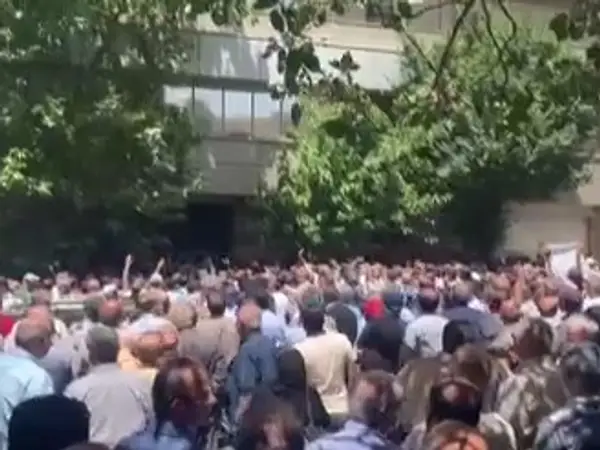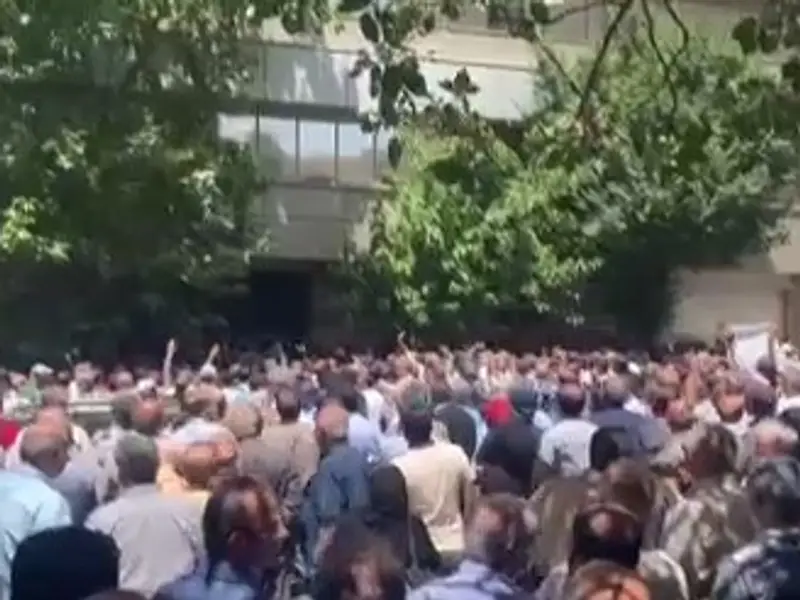Anti-government protests and strikes by merchants continued in Iran for the fourth consecutive day in the capital Tehran and many other cities and towns.
Retirees who have been demonstrating for weeks led most of the protests to the government’s political and economic policies, which have led to runaway inflation.
In Tehran, a group of quasi-state bank retirees rallied to demand higher pensions, in par with former employees of government banks. In Ahvaz, the capital of the oil-rich Khuzestan province retirees gathered outside the provincial governor’s office, demanding higher pensions. They chanted slogans against President Ebrahim Raisi calling him a liar.
Iran’s economic crisis and inflation have worsened considerably since Raisi was elected one year ago with lofty promises of defying United States economic sanctions and improving people’s living conditions.
The Iranian currency has fallen by 25 percent just since March, hitting a historic low of 333,000 rials against the US dollar, fueling further inflation. The people who waited to see if a united hardliner government and parliament can reach a nuclear agreement with the United States and lift sanctions, seem to have run out of patience.
Retirees protesting in Ahvaz
Retail merchants who began strikes and protests on Sunday, June 12, continued to defy the government and keep their businesses closed in many cities on Wednesday, protesting a rapid rise in prices.
The government scrapped food import subsidies in early May, which triggered an instant jump in prices of bread and other necessities. Retailers began protesting the unsettled conditions and new taxes on small businesses amid a large government budget deficit. The exact figure of the deficit is obscured, but it is generally estimated to be more than 50 percent.
Iran’s government has always relied on oil exports as the main source for financing its budget, but four years of US sanctions have depleted its resources to finance operations, while large appropriations for the military and ideological entities have increased.
Iran International received reports and images Wednesday showing some retail businesses on strike in Shiraz, southern Iran. Merchants in Ilam in Western Iran have also gone on strike against increased taxes.
The council of teachers’ trade unions also renewed its demand to release 18 educators arrested during repeated protests in recent months. The council last week called for nationwide protests for Thursday, June 16.
But what is ominous for the government are signs of other groups pledging support to the protesting teachers. A non-governmental council representing oil industry contract workers and a group representing university students called for support for the teachers’ scheduled protest on Wednesday.
“We will fight, we will die, but achieve our rights,” was one of the slogans chanted by protesters in Ahvaz.

